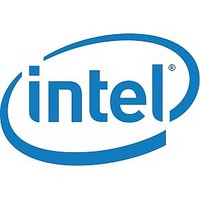BLKD815EPFVU Intel, BLKD815EPFVU Datasheet - Page 32

BLKD815EPFVU
Manufacturer Part Number
BLKD815EPFVU
Description
Manufacturer
Intel
Datasheet
1.BLKD815EPFVU.pdf
(145 pages)
Specifications of BLKD815EPFVU
Lead Free Status / Rohs Status
Supplier Unconfirmed
- Current page: 32 of 145
- Download datasheet (2Mb)
Intel Desktop Board D815EFV/D815EPFV Technical Product Specification
1.8.2.2.2
32
The IDE interfaces also support ATAPI devices (such as CD-ROM drives) and ATA devices using
the transfer modes listed in Table 71 on page 121.
The BIOS supports Logical Block Addressing (LBA) and Extended Cylinder Head Sector (ECHS)
translation modes. The drive reports the transfer rate and translation mode to the BIOS.
The D815EPFV board supports Laser Servo (LS-120) diskette technology through its IDE
interfaces. The LS-120 drive can be configured as a boot device by setting the BIOS Setup
program’s Boot menu to one of the following:
•
•
The ICH2 contains two separate USB controllers. The D815EPFV board has four USB ports; one
USB peripheral can be connected to each port. For more than four USB devices, an external hub
can be connected to any of the ports. The D815EPFV board fully supports the Universal Hub
Controller Interface (UHCI).
In the standard configuration, the D815EPFV board’s four USB ports are implemented with
stacked back panel connectors, routed through the ICH2, as shown in Figure 8.
With the optional SMSC LPC47M142 I/O controller, the D815EPFV board supports up to seven
USB ports. The SMSC LPC47M142 I/O controller provides four ports: two ports implemented
with stacked back panel connectors and two ports routed to the optional front panel USB connector
at location J8F1. The ICH2 provides three ports: two ports are implemented with stacked back
panel connectors and the other port is accessible through a CNR add-in card, as shown in Figure 8.
For information about
The location of the IDE connectors
The signal names of the IDE connectors
BIOS Setup program’s Boot menu
ARMD-FDD (ATAPI removable media device – floppy disk drive)
ARMD-HDD (ATAPI removable media device – hard disk drive)
USB
Refer to
Figure 15, page 73
Table 43, page 77
Table 79, page 130










